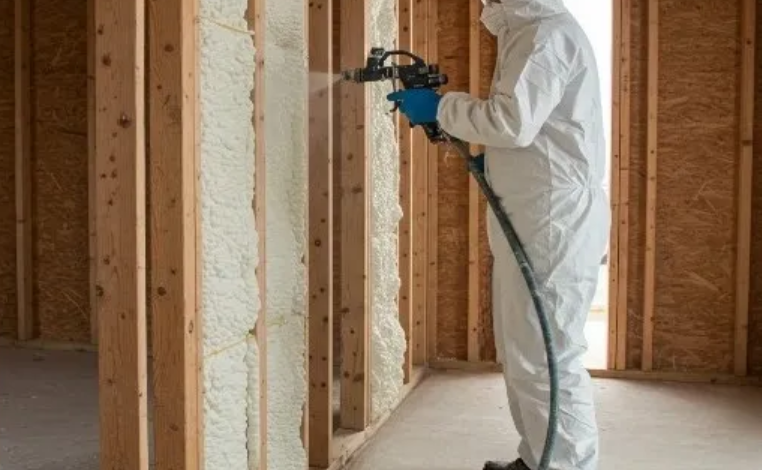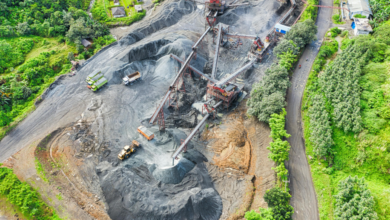How to Improve Building Safety with Professional Fireproof Insulation

In today’s construction industry, building safety has become more important than ever. As modern structures grow larger and more complex, the risks associated with fire, heat, and noise also increase. To protect lives, property, and investments, builders and property owners must prioritize fireproof, acoustic, and thermal insulation solutions that meet high safety and efficiency standards.
In regions like Valencia, Spain, where both residential and industrial development is on the rise, companies specializing in fireproofing and insulation play a vital role. Choosing the right insulation system not only enhances safety but also contributes to better energy performance and comfort.
This article will guide you through the importance of fireproof insulation, how it works, and why working with experienced professionals — such as Acusfoc — is essential for achieving reliable results.
Understanding Fireproof Insulation
Fireproof insulation is designed to resist high temperatures and prevent the spread of flames within buildings. It acts as a protective barrier between the structure and potential fire hazards. Unlike standard insulation materials, fireproof products are made from non-combustible components such as:
- Mineral wool (rock wool or glass wool)
- Calcium silicate boards
- Intumescent coatings and paints
- Fire-resistant foams and sealants
When exposed to fire, these materials maintain their structural integrity, slowing down heat transfer and giving occupants more time to evacuate safely.
Fireproofing is not just about adding safety; it’s also a legal requirement in most Spanish building codes. Properly installed systems can prevent small incidents from turning into devastating fires, helping protect lives and reduce property damage.
Why Fireproofing Matters in Construction
1. Compliance with Building Regulations
Spanish construction regulations, such as the Código Técnico de la Edificación (CTE), require buildings to meet strict fire safety standards. Fireproof insulation ensures compliance with these codes, which is crucial for project approval and long-term safety certification.
2. Protecting Human Life
A well-designed fireproofing system provides valuable evacuation time during an emergency. It slows the spread of flames, smoke, and toxic gases, allowing people to exit the building safely.
3. Reducing Structural Damage
Fire-resistant materials protect steel beams, concrete, and other structural components from excessive heat, maintaining the integrity of the building even under extreme conditions.
4. Enhancing Property Value
Buildings equipped with certified fireproof and acoustic insulation systems are more attractive to investors and buyers. They offer peace of mind and meet modern expectations for sustainable and safe design.
5. Energy Efficiency and Comfort
Many fireproof materials also provide thermal insulation, improving energy efficiency and reducing heating or cooling costs. This dual functionality is especially beneficial for both residential and industrial buildings.
Types of Insulation Used in Modern Construction
In addition to fireproofing, modern buildings require solutions that also address acoustic and thermal performance. Here are the three key types of insulation widely used today:
1. Fireproof Insulation
As discussed, fireproof materials prevent flame spread and structural weakening. Common applications include:
- Fireproof coatings for steel beams
- Intumescent paints for walls and ceilings
- Fire-resistant boards for ducts and partitions
2. Acoustic Insulation
Noise pollution can severely affect comfort and productivity. Acoustic insulation absorbs or blocks sound transmission, making it ideal for:
- Residential buildings near busy streets
- Office spaces, hotels, and hospitals
- Industrial areas with high machinery noise
3. Thermal Insulation
Thermal insulation helps maintain stable indoor temperatures, reducing energy consumption and improving comfort. In Spain’s warm climate, proper insulation prevents overheating during summer and keeps interiors warm in winter.
See also: Why Your Home Might Need a Security Door
Fireproofing in Valencia: Why It’s Crucial
Valencia is one of Spain’s most dynamic regions, with a strong focus on sustainable and safe construction practices. The combination of urban development, historical architecture, and industrial activity makes fireproofing and insulation services indispensable.
In this region, climate and humidity levels can also influence building materials’ performance. Therefore, working with local specialists such as Acusfoc, who understand Valencian building standards and environmental conditions, ensures optimal and long-lasting results.
How Professional Fireproofing Works
The fireproofing process involves several key stages:
- Site Assessment
Experts evaluate the building’s structure, identifying fire risks and determining the appropriate materials and techniques for each area. - Material Selection
Depending on the environment (industrial plant, office, or residential building), specialists choose the right fireproof materials — from sprays and boards to coatings. - Application Process
- Spray fireproofing: Applied to steel or concrete surfaces.
- Intumescent paints: Expand when heated, forming a protective char layer.
- Board systems: Fixed to walls, ceilings, or ducts for enhanced protection.
- Inspection and Certification
Once installed, the system is tested and certified to ensure it meets Spanish and EU fire-resistance standards.
Acoustic and Thermal Benefits of Modern Insulation
While fire protection is the primary goal, modern insulation systems deliver additional benefits:
- Noise Reduction: Acoustic insulation helps create quieter environments, reducing sound transmission between rooms and floors.
- Energy Savings: Quality thermal insulation can cut energy consumption by up to 30%, lowering costs for both homes and businesses.
- Improved Comfort: Insulated spaces maintain stable temperatures, preventing drafts and condensation.
- Eco-Friendly Performance: Many insulation materials are recyclable and made with environmentally friendly processes.
Companies like Acusfoc specialize in combining these benefits into a single, high-performance system tailored to each project.
Common Applications of Fireproof Insulation
Fireproofing is essential in many sectors, including:
- Commercial Buildings: Offices, shopping centers, and hotels require certified fireproof systems for safety compliance.
- Industrial Facilities: Factories and warehouses use specialized coatings to protect steel structures and machinery.
- Public Institutions: Schools, hospitals, and government buildings demand top-level protection for public safety.
- Residential Projects: Homes and apartment complexes benefit from combined fireproof and acoustic insulation for comfort and security.
Why Choose Professional Insulation Services
While some insulation products are available for DIY projects, professional installation offers unmatched reliability and compliance. Here’s why working with certified companies like Acusfoc is crucial:
- Expert Knowledge: Professionals understand fire resistance ratings and local building codes.
- Quality Materials: Certified products ensure consistent performance and durability.
- Precision Application: Proper techniques guarantee full coverage and protection.
- Long-Term Safety: Professionally installed systems last longer and perform better under stress.
- Regulatory Compliance: Certified installation ensures your project meets Spanish safety laws.
Fireproofing Trends in Spain
As sustainability becomes a top priority in construction, fireproofing and insulation technologies are evolving rapidly. Some current trends include:
- Eco-Friendly Materials: Using mineral-based and recyclable insulation components.
- Integrated Systems: Combining fireproof, acoustic, and thermal insulation in one installation.
- Digital Monitoring: Smart systems that track temperature and fire risks in real-time.
- Energy-Efficient Design: Fireproof materials that also reduce carbon emissions.
These innovations align perfectly with Spain’s commitment to energy efficiency and building safety in modern architecture.
About Acusfoc: Experts in Fireproofing and Insulation in Valencia
Acusfoc is one of the leading fireproofing companies in Valencia, offering specialized solutions for both industrial and commercial clients. Their team provides a full range of services — from fireproof coatings and acoustic insulation to thermal protection and structural reinforcement.
With extensive experience and adherence to Spanish and European standards, Acusfoc ensures that every project is delivered with maximum safety, quality, and durability. Whether you need fireproofing for a new construction project or maintenance for existing structures, their professional approach guarantees peace of mind.
To learn more about their innovative fireproofing systems, visit Acusfoc and discover how expert insulation can make your building safer, quieter, and more energy-efficient.
Conclusion
Fireproof, acoustic, and thermal insulation are essential components of safe and sustainable construction. They not only protect lives and structures but also improve comfort and energy efficiency.
In Spain — and especially in Valencia — where the construction sector continues to grow, relying on professionals like Acusfoc ensures compliance with safety regulations, superior performance, and lasting protection.




